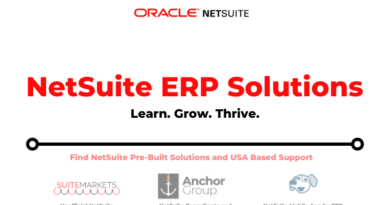How Business Analytics can Drive your Business Growth in 2022
Analytics, in scientific terms, means the process of transforming data into insight for making better decisions. Business Analytics is a systematic process that applies qualitative, and quantitative. Statistical computational tools and methods to analyze data, and gain insights to support decision-making processes.
Business analytics is a relatively newer innovation in the accounting world that involves the use of technology. To make critical business decisions based on reliable business analytics. These solutions can provide business owners with trend analysis and performance feedback and business insight for decisive actions. That can result in cost efficiency and/or revenue growth.
Business analytics uses several techniques which may include diagnostic, predictive, prescriptive, and optimization models. With the goal of its implementation being to improve and support business decision-making.
Today, both analytics and data are becoming increasingly central to decision-making processes in modern companies. Many business owners also believe that analyzing customer data can give companies a competitive advantage.
An IDC study in 2002, conducted by Morris et al states: “A business analytics implementation generates. A median five-year return on investment (ROI) of 112% with a mean payback of 1.6 years on average costs of $4.5 million.”
Further, business analytics be used to target leads that have a higher chance of conversion. Business analytics can also help business owners determine. The right pricing strategy that would provide the highest conversion and profitability for the firm. Moreover, business analytics can help business owners determine the right place to target to sell their services. Consumer data can also tell business owners what services consumers like and need and what services are not performing well. Thus, it is imperative for business owners that any decision they make is based on valuable data insights.
Business analytics has evolved significantly over the past few years, giving business owners valuable insights. It involve website data that can be accessed from Google Analytics.
How Business Analytics can Drive Business Growth?
Identifying New Business Opportunities
Analyzing data can help business owners explore new opportunities for their business growth, for example. A survey conducted can help business owners to launch a new service or sell their product in a new area. This can increase the potential for profitability and growth.
Avoid setbacks by tracking operations
Business analytics can help business owners evaluate potential problem-causing areas before they become more significant setbacks, which ensures smooth business flow. By relying on business analytics, business owners can make well-informed decisions that are based on real-time data and track the resulting outcome.
Know Customer’s Demands
Business owners can use data to analyze their customer’s demands and implement their business strategy accordingly. Companies can also track their customers’ buying habits to better understand their needs and demands.
Create Interactive Relationships with Consumers
Business owners can use consumer data to create a harmonious relationship with their customers by knowing their likes and dislikes. This can help increase the number of repeat clients.
Analyzing Decline in Demand
Well-informed business owners should know when it is the best time to promote their company’s products and increase or decrease their production based on their selling performance and the time at which their sales are at peak. For example, increasing the production of winter clothing in the summer season might not be the best decision to make.
Learn from past Errors
“To err is to be human.” Analyzing the performance of past sales can help business owners decide whether to discard their service or increase its supply based on its performance. Not knowing the product’s past performances can leave business owners clueless as to why the company is not making enough profits.
While analyzing data, businesses might not be able to give the required attention to their company’s accounting department, as some start-up owners choose to do their business accounting by themselves. This can leave the company vulnerable to sub-optimized accounting and business functions. Thus, business owners can consider outsourcing or staff augmentation as solutions to fulfilling their accounting needs.
Expertise Accelerated as Staff Augmentation Partner
Expertise Accelerated (EA) is a Connecticut-based outsourcing and staff augmentation specialist for accounting & finance services. That promises 60 percent quality-assured payroll savings to its US clients.
Led by a US CPA team that boasts decades of US CPG industry experience. EA offers high-quality staff augmentation solutions geared toward delivering substantial value. And cost savings to client companies.
EA’s staff augmentation doctrine is not based on body shopping but on remote staffing under. Which seasoned accounting & finance and supply chain professionals from an offshore global talent pool are trained by the US. Onshore team for client-specific roles to turn such professionals into strategic fits for the client companies.
EA’s staff augmentation has proved to have delivered payroll savings, process efficiencies. And value-addition to the US SMEs, CPG sector companies in particular.
Conclusion
In today’s corporate world, it might be not the best decision to start a business without planning a long-term business analytics strategy. To gain a competitive foothold in the industry, business owners should implement an effective business analytics plan that will help with tailoring their services according to their customers’ needs. Business owners, while being experts in entrepreneurship, might not be experts in business analytics and statistics. Thus, it is recommended that business owners hire business analytics experts to have access to professional advice when analyzing their data. Further, business owners should make sure that their analytics go beyond customer-centric applications to support marketing, supply chain visibility, price optimization, and workforce analysis



